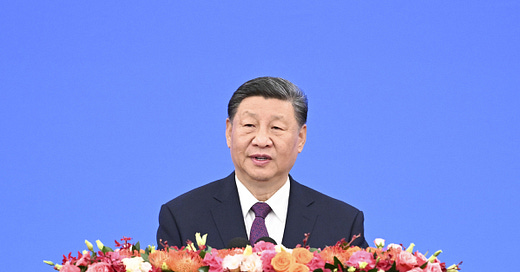The Five Principles of Peaceful Coexistence
A historic Indonesian/Chinese vision embraced by Xi Jinping and the Global South
The Five Principles of Peaceful Coexistence were listed in the Preamble to the Sino-Indian Agreement, signed by China and India in Peking on April 29, 1954. The five principles are: mutual respect for each other's territorial integrity and sovereignty; mutual non-aggression; mutual non-interference in each other's internal affairs; equality and cooperation for mutual benefit; and peaceful co-existence. The five principles provided the foundation for the six articles of the Agreement, which outlined the structures for mutually beneficial trade between the two countries and the provisions for pilgrimages by religious believers from both countries.
The five principles were originally formulated by Sukarno of Indonesia in 1945. Subsequently, they were declared to be the “five principles governing China’s relation with foreign countries” on December 1, 1953, by Chinese Premier Zhou Enlai during the Tibetan trade talks with India. Zhou and Indian Prime Minister Jawaharlal Nehru…


